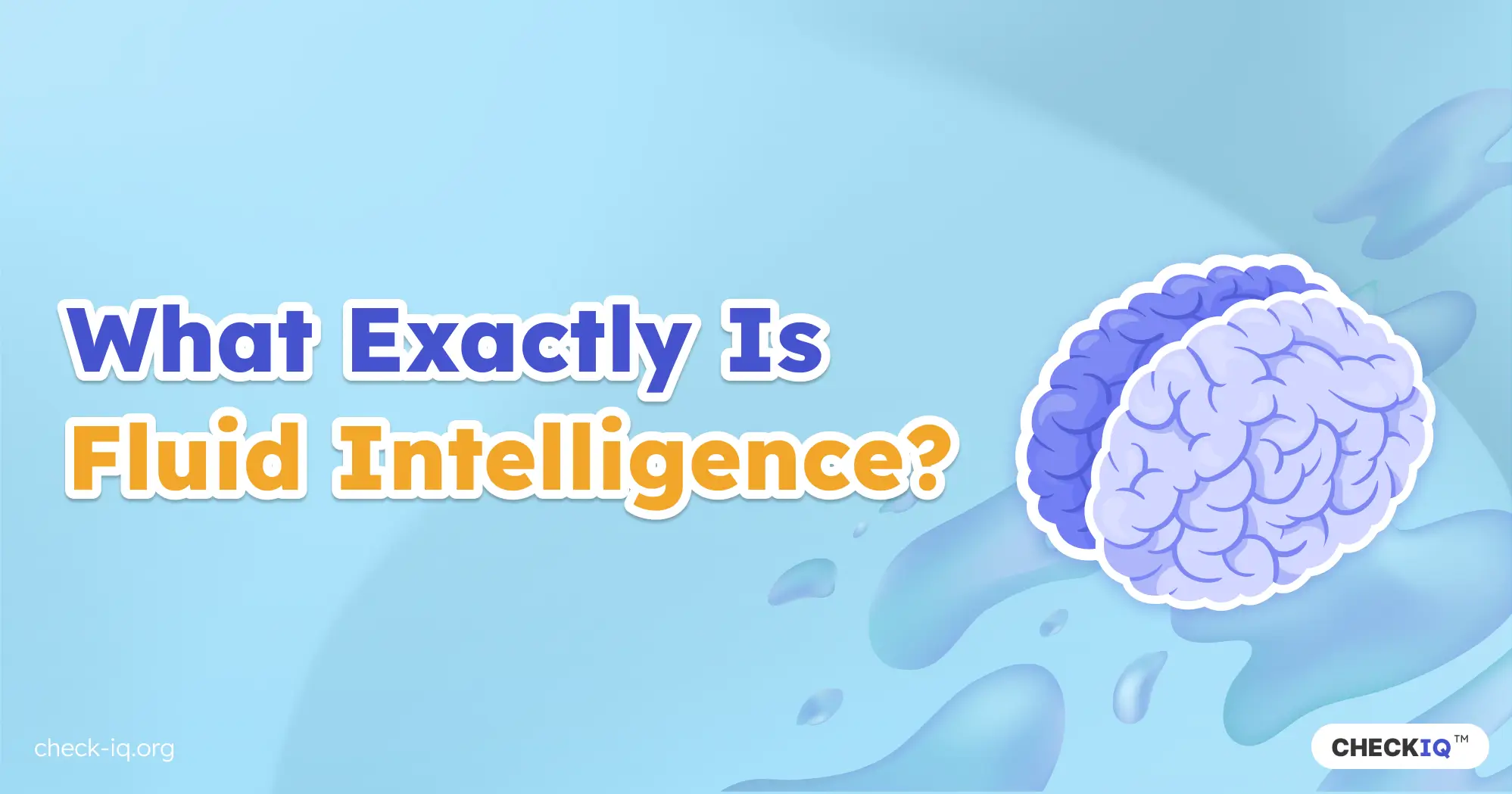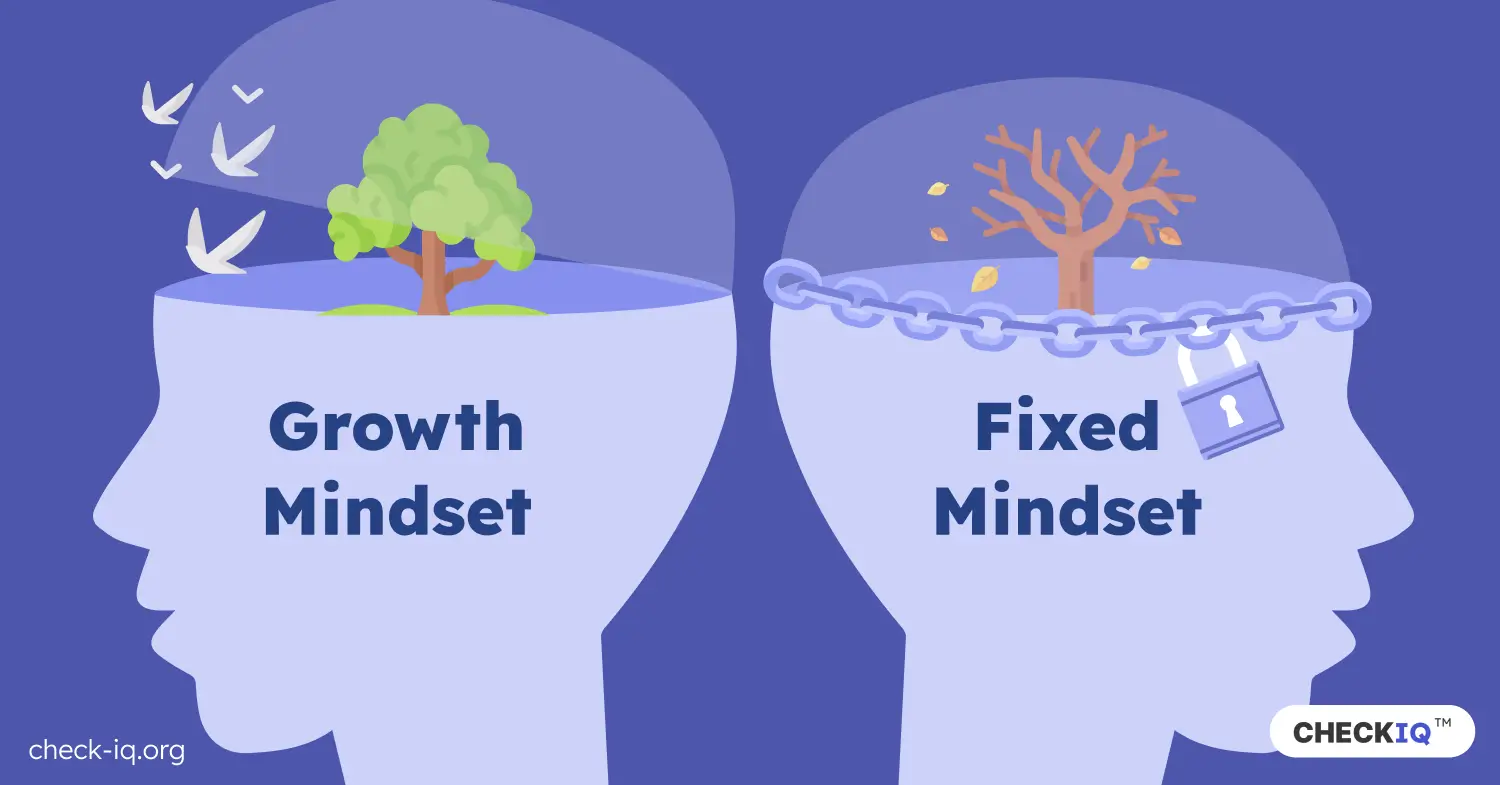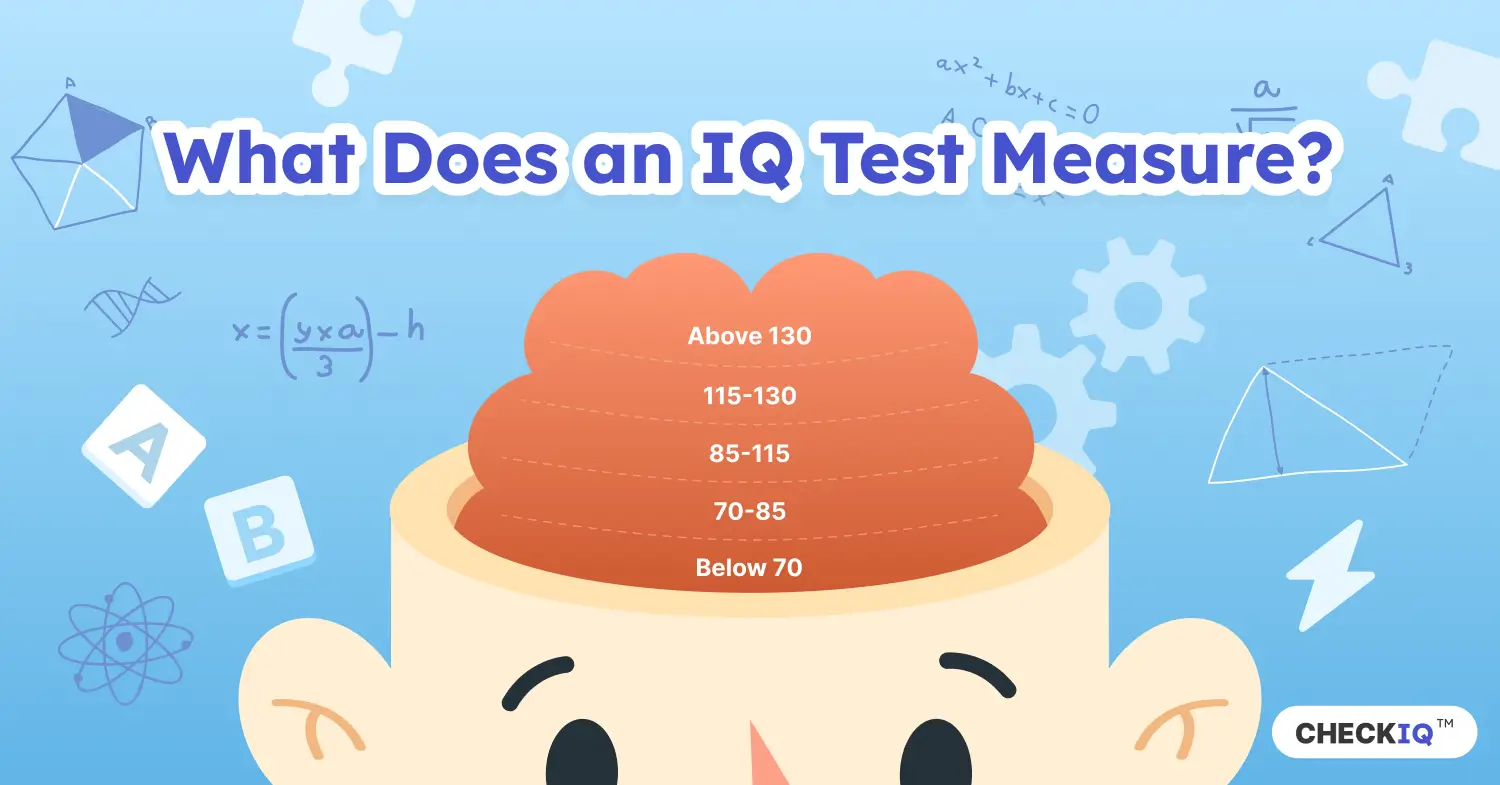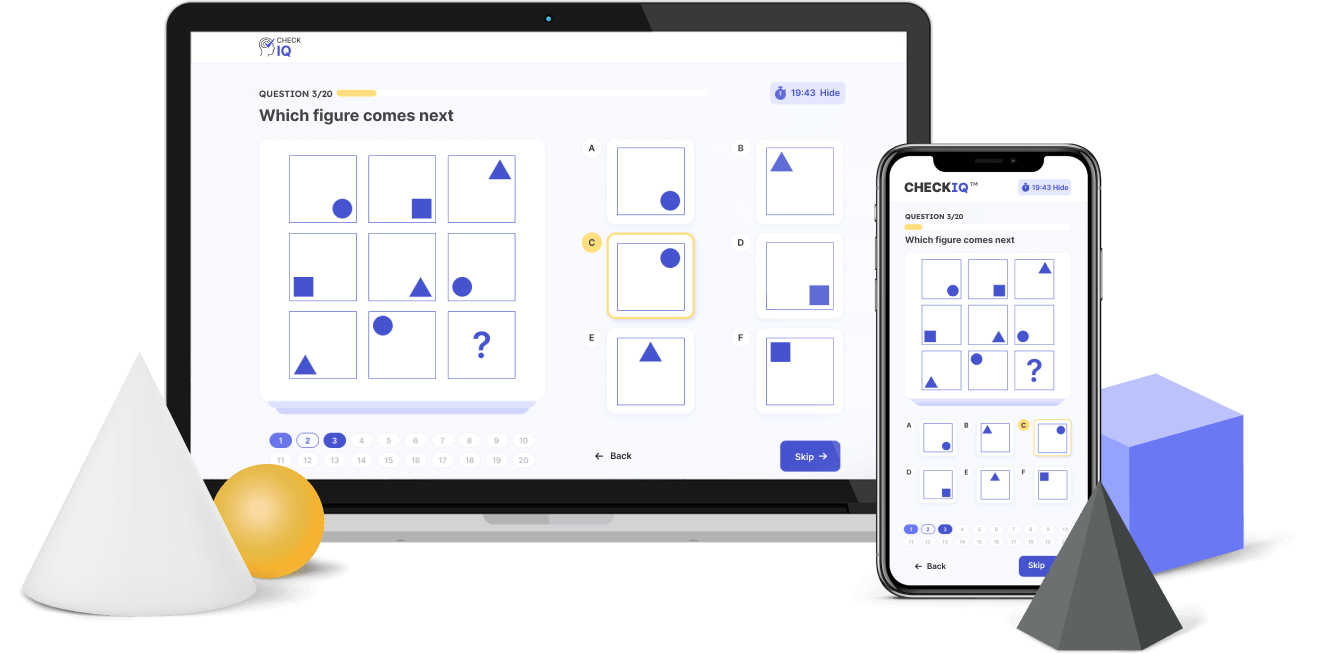For many people, “intelligence” or “high IQ” mean you can solve tough math equations in seconds and ace every trivia question at a party. That's a narrow-minded view. In fact, modern psychology research shows that intelligence isn’t a single, one-dimensional ability. It’s more like a big umbrella covering many distinct cognitive skills and processes. Under that umbrella, one of the most important skills is fluid intelligence. .
To understand how it sets itself apart from other types of intelligence, and what you can do to hone it, follow this guide:
What Is Fluid Intelligence?
Fluid intelligence is often described as the ability to reason in real-time. More specifically, it refers to:
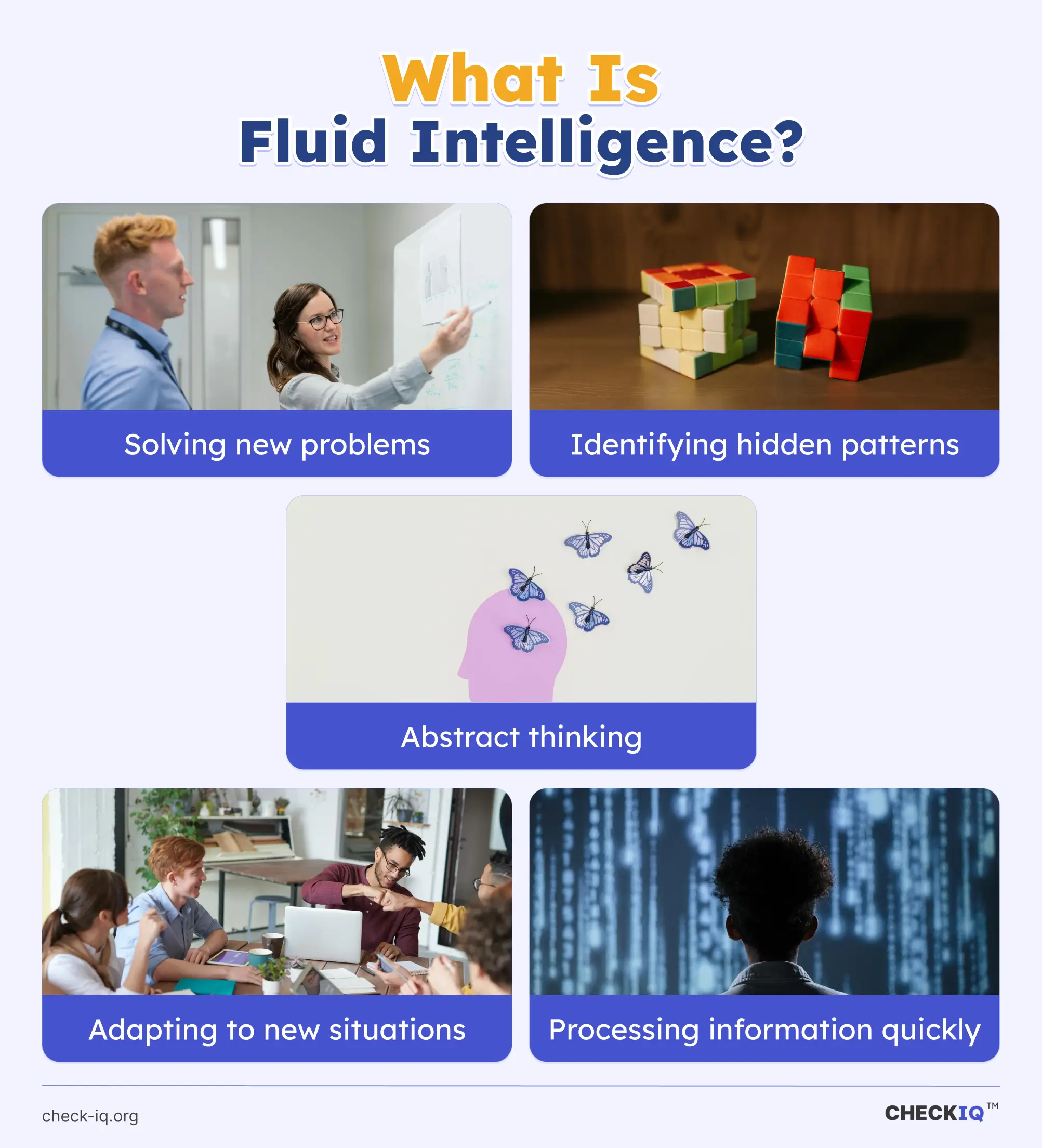
- Solving new problems
- Identifying hidden patterns
- Abstract thinking
- Adapting to new situations
- Processing information quickly
For example, imagine you’re discovering a brand-new board game with rules you’ve never heard before. If you’re able to pick up those rules quickly, notice useful strategies before anyone else, and adapt your tactics during the game, you’re essentially using your fluid intelligence.
The term “fluid” is quite telling: it hints at how flexible and adaptable this type of intelligence really is. Think of water being poured into different containers: it takes the shape of whatever space it fills. In the same way, fluid intelligence lets you adjust to unfamiliar situations and reshape your approach on the fly.
It’s not about memorizing facts or storing information long-term. Instead, it’s about processing fresh data, applying logic, and using strategies that fit the moment.
A reliable 100% adaptive online IQ Test. Get your IQ score immediately.
Start My IQ Test
How Fluid Intelligence Differs from Crystallized Intelligence
Crystallized intelligence is the knowledge and experience you’ve built over time. While fluid intelligence focuses on fresh problem-solving and real-time adaptation, crystallized intelligence reflects your store of known facts, vocabulary, and learned techniques. It’s the knowledge you’ve accumulated in your work, education or daily life. For example, knowing how to perfectly cook an egg, remembering the capital of Switzerland, or understanding how to repair a flat tire… these are all examples of crystallized intelligence.
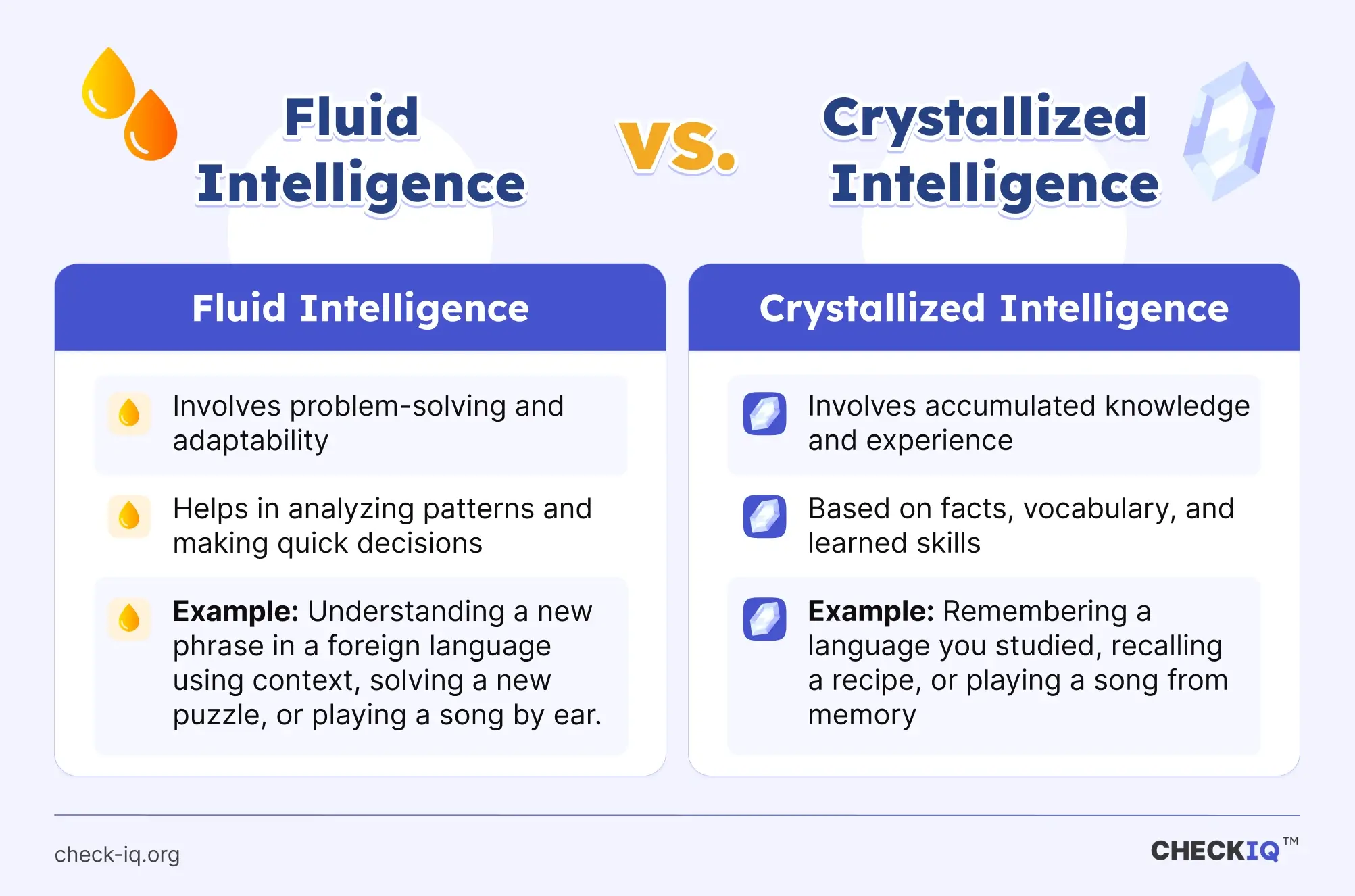
Contrary to what many people assume, fluid intelligence and crystallized intelligence are not mutually exclusive. Oftentimes, fluid intelligence works alongside crystallized intelligence, which is the knowledge and experience you build over time.
Imagine you're fluent in Spanish because you've studied it for years. You can recall the words and grammar rules, read texts in Spanish, and hold conversations based on phrases you've memorized. This is because of your crystallized intelligence. However, if you come across a phrase in Spanish that you never learned, your brain will try to translate it using word pattern recognition or by analyzing the context. This is the result of fluid intelligence.
Let’s take another example to make it crystal-clear: remembering how to play a song on the piano that you learned years ago is crystallized intelligence. But figuring out how to play a brand-new song by simply listening to it is fluid intelligence.
Fluid Intelligence vs. Working Intelligence
“Working intelligence” is another type of intelligence you’ve probably heard of. While fluid intelligence revolves around solving new problems and adapting to unexpected challenges, working intelligence (closely tied to the concept of working memory) is the ability to temporarily hold and manipulate information in your mind.
Although fluid intelligence and working intelligence overlap in many tasks, they aren’t exactly the same. Working intelligence often represents your “mental scratchpad”, while fluid intelligence draws upon creativity, pattern recognition, and logic under novel conditions.
Ok let’s take an example to illustrate this. Suppose you’re doing math to calculate a restaurant bill without writing anything down. You need to juggle numbers in your head. This taps into your working memory. Fluid intelligence, by contrast, takes this short-term thinking a step further. It involves spotting patterns or logical connections and discovering entirely new ways to reach a solution. For instance, if you decide there’s a simpler approach to calculating the tip, or you invent a shortcut to handle multiple numbers at once, you’re relying on the creative, adaptive quality of fluid intelligence.
Which Types of IQ Test Questions Measure Fluid Intelligence?
When you tackle pattern recognition or abstract reasoning tasks, you’re testing your fluid intelligence.
An example of fluid intelligence question type is matrix reasoning, where you see a grid of shapes and need to figure out which missing shape completes the pattern.
Another common IQ test question type might show you an incomplete series of numbers or letters and ask you to continue the sequence based on an underlying rule. These questions capture how quickly and accurately you can deduce new logical connections.
Since fluid intelligence focuses on problem-solving under new conditions, many psychologists view it as a strong indicator of “learning potential”.
A person with high fluid intelligence might pick up new tasks or technologies faster, because they can adapt without requiring a strong foundation of prior knowledge.
Note that some IQ tests also measure crystallized intelligence by assessing vocabulary and general knowledge. However, these types of questions inherently carry a bias, as they can give an unfair advantage to individuals from certain social, cultural, and economic backgrounds. For example, someone who grew up in the U.S. may be less familiar with European history questions. Similarly, non-native English speakers may struggle with vocabulary questions in English.
When Does Fluid Intelligence Peak?
One of the most frequently asked questions about fluid intelligence is: "When does it peak?" Research typically points to a peak during early adulthood, usually in the late 20s or early 30s. After this point, it tends to decline gradually.
Recent studies have helped us better understand why and how this happens.
Researchers have found that this decline is influenced by multiple factors. A study published in Brain and Cognition revealed that as we age, our processing speed slows down, and the frontal lobe – a key brain region for reasoning and problem-solving – undergoes changes. These factors together contribute to why older adults may find it harder to solve novel problems as quickly as they once did. However, the study also found that age alone isn't the only factor at play, suggesting that other aspects of brain function and lifestyle could help counteract these effects.
This understanding was further deepened by a large-scale study conducted by the University of Cambridge, which examined over 185,000 participants. While older individuals tended to score slightly lower on tests of fluid intelligence, the researchers found that brain structure played a significant role. Specifically, people with higher grey matter volume in the frontal lobe and stronger white matter connections performed better on these tests, regardless of age. This suggests that while fluid intelligence naturally declines over time, maintaining brain health through mental and physical activities could help slow this process.
However, the picture becomes more nuanced when we look at research from MIT. Their findings show that different aspects of cognitive ability peak at different ages – some as early as the late teens, while others continue improving into the 30s and even 40s. For example, raw processing speed seems to peak around age 18 or 19, but short-term memory and problem-solving skills may not reach their highest levels until the early 30s. That’s why teenagers are often great at picking up new video games instantly but might struggle with the deep strategic thinking that comes with years of experience. This suggests that intelligence isn't a single ability that rises and falls at once, but rather a collection of skills that develop and decline at different rates.
This interplay between the two helps explain why a younger adult might quickly pick up new technologies (fluid intelligence at work), while an older adult can rely on a wide range of experiences to tackle problems more efficiently (crystallized intelligence in action).
How Fluid Intelligence Is Measured
We’ve previously covered the types of IQ test questions that measure intelligence. But what are the most popular IQ test types that feature them?
One well-known example is Raven’s Progressive Matrices, which is based on patterns of shapes. In this test, you have to identify which missing pieces complete the patterns.
Another popular tool is the Cattell Culture Fair Intelligence Test, designed to reduce biases by focusing on non-verbal tasks, like shape sequences and spotting which image doesn’t belong in a group of pictures.
You may also have encountered matrix reasoning subtests in broader IQ tests, such as those in the Wechsler Adult Intelligence Scale (WAIS). These tests, similar to Raven’s Matrices, require test-takers to detect visual patterns and complete logical sequences.
Our online IQ test builds on these principles by dynamically adjusting question difficulty based on your performance. This gives you a more personalized and accurate assessment.
You’re Relying on Fluid Intelligence Every Day!
Fluid intelligence isn’t just for acing tests or puzzles - you use it in countless real-life situations. For example, let’s say your phone’s navigation app suddenly fails while you’re in an unfamiliar part of town. Without a map or prior knowledge of the streets, you rely on fluid intelligence to notice road signs, pick out logical routes, and sense-check your choices as you drive.
Even social situations can require fluid intelligence. Imagine you're talking to someone you've just met, and they mention a hobby or job you're unfamiliar with, let’s say pickleball, a rapidly growing sport. As you listen to them describe it, you might use context clues to deduce that it’s a racket sport, similar to tennis, which you may be more familiar with.
In sum, if you can quickly pick up on the conversation’s context, draw analogies to more familiar topics, and make useful guesses about how their work functions, you’re drawing on your capacity for flexible thinking.
How to Improve Fluid Intelligence
Many people worry that once they hit their 30s or 40s, it's inevitable that their fluid intelligence will drop off a cliff. While some degree of decline is a normal part of aging, there's good news: research suggests you can maintain or even improve your fluid intelligence through specific lifestyle choices and mental exercises.
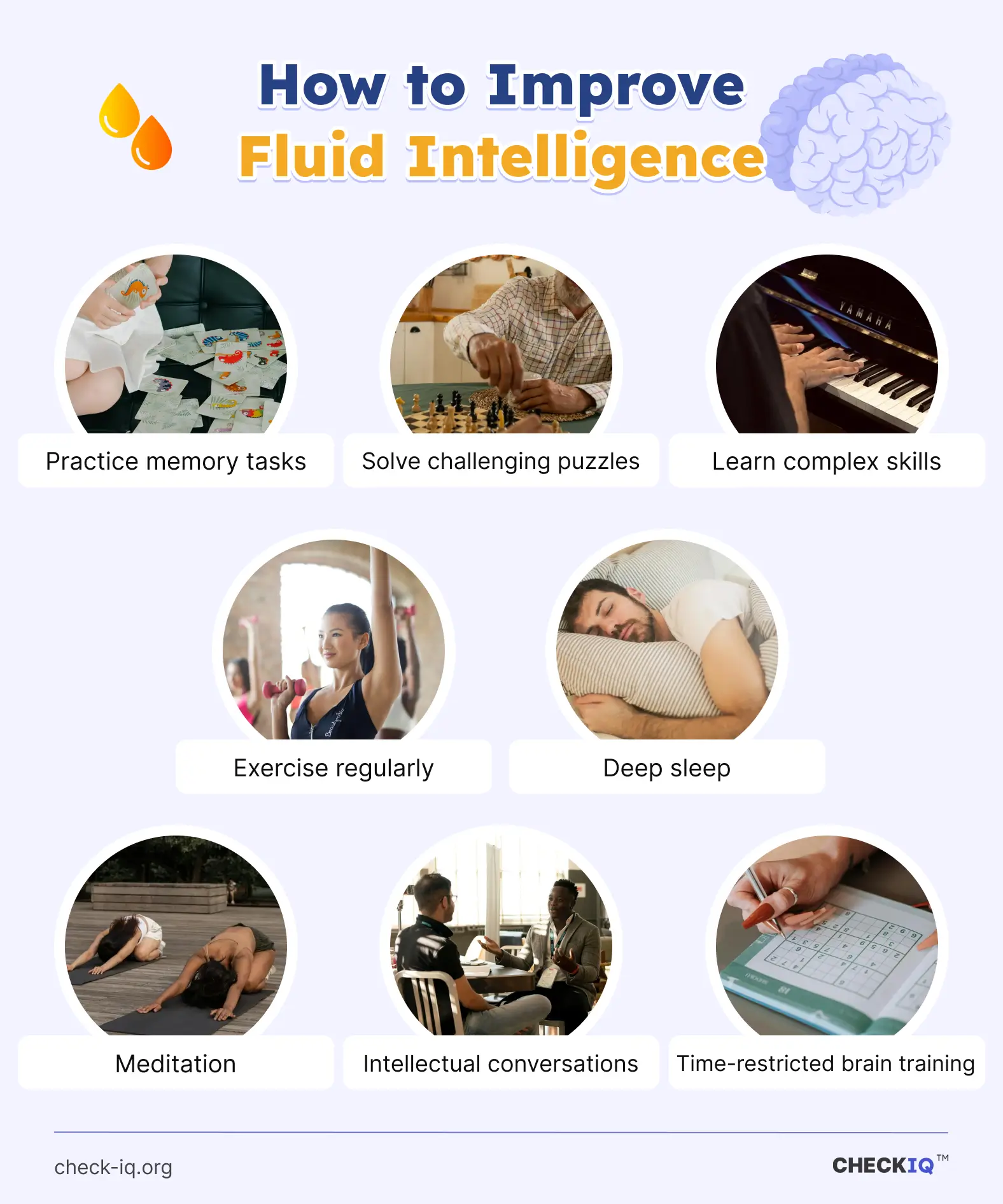
One of the most exciting findings in cognitive research is that, just like IQ can improve, fluid intelligence isn't entirely fixed – it can be improved with the right training. A study published in Frontiers in Psychology found that children who participated in working memory training for 20 days showed significant improvements in their fluid intelligence. The researchers believe this is because training exercises that challenge working memory also strengthen inhibition control, which helps the brain process information more efficiently.
This finding was reinforced by another study from researchers in China, which tested early interventions in preschoolers. Over a 14-day period, children trained using a n-back task (a type of memory exercise that requires constant attention and recall). Not only did they show immediate improvements in fluid intelligence, but the benefits lasted for up to 12 months! While these studies focused on young minds, they support the broader principle that keeping your brain actively engaged can help sustain and even improve cognitive performance at any age.
The Role of Physical Health in Fluid Intelligence
Physical health plays a big role in cognitive well-being, too.
A fascinating study conducted in Spain examined the connection between physical fitness and fluid intelligence in school children.

The results showed that children who performed better on physical tasks like sprinting, jumping, and agility drills also scored higher on fluid intelligence tests. This suggests that regular exercise – especially activities that involve coordination and quick decision-making – can have a positive impact on cognitive function.
And in case you’re wondering how this applies to you, research showed similar links to those between exercise and brain health in adults.
Common Myths about Fluid Intelligence
Like with everything related to intelligence and Iq, fluid intelligence is the subject of many myths and false beliefs. Let’s go through some of the most common.
Fluid intelligence is genetic
Because intelligence is complex, it’s no surprise that myths have sprung up around it. One myth is that “fluid intelligence is fixed at birth and can’t be changed.”
While genetics do play a role in intelligence, environmental factors also matter. Lifelong learning, good nutrition, and mental challenges can all affect cognitive performance, indicating that fluid intelligence isn’t set in stone.
Fluid intelligence goes down with age
Another myth is the idea that “once you hit your peak, it’s all downhill.” While it’s true that many aspects of fluid intelligence can slow down with age, countless people maintain high levels of abstract thinking well into later years.
They often credit their success to regular mental stimulation, healthy living, and stress management. Remember, as we’ve noted earlier, the gradual decline in fluid intelligence can be partially offset by increases in crystallized intelligence and accumulated life wisdom. For more information, consider reading our article about IQ trends over time.
Fluid intelligence = real intelligence
A final myth is that “fluid intelligence is the only measure of real intelligence.” In reality, intelligence is complex. You can have individuals who excel in emotional intelligence, creativity, verbal fluency, or social skills – abilities that might not show up in a fluid intelligence test but are undeniably forms of cognitive expertise.
Even a high IQ score may not fully capture how well someone navigates relationships or responds to emotional cues, which are crucial aspects of human intelligence.
Conclusion
Fluid intelligence is a cornerstone of what makes our minds so adaptable and vibrant. It allows us to face new challenges head-on, come up with innovative solutions, and recognize patterns we’ve never seen before.
The next time you find yourself tackling a complicated puzzle, learning to use a new app, or trying to piece together a clever solution under pressure, you’ll know you’re putting your fluid intelligence to use.
If you want to keep that mental agility strong, don’t be afraid to shake up your routine, learn new skills, and embrace every chance you get to push your thinking outside its usual comfort zone!

